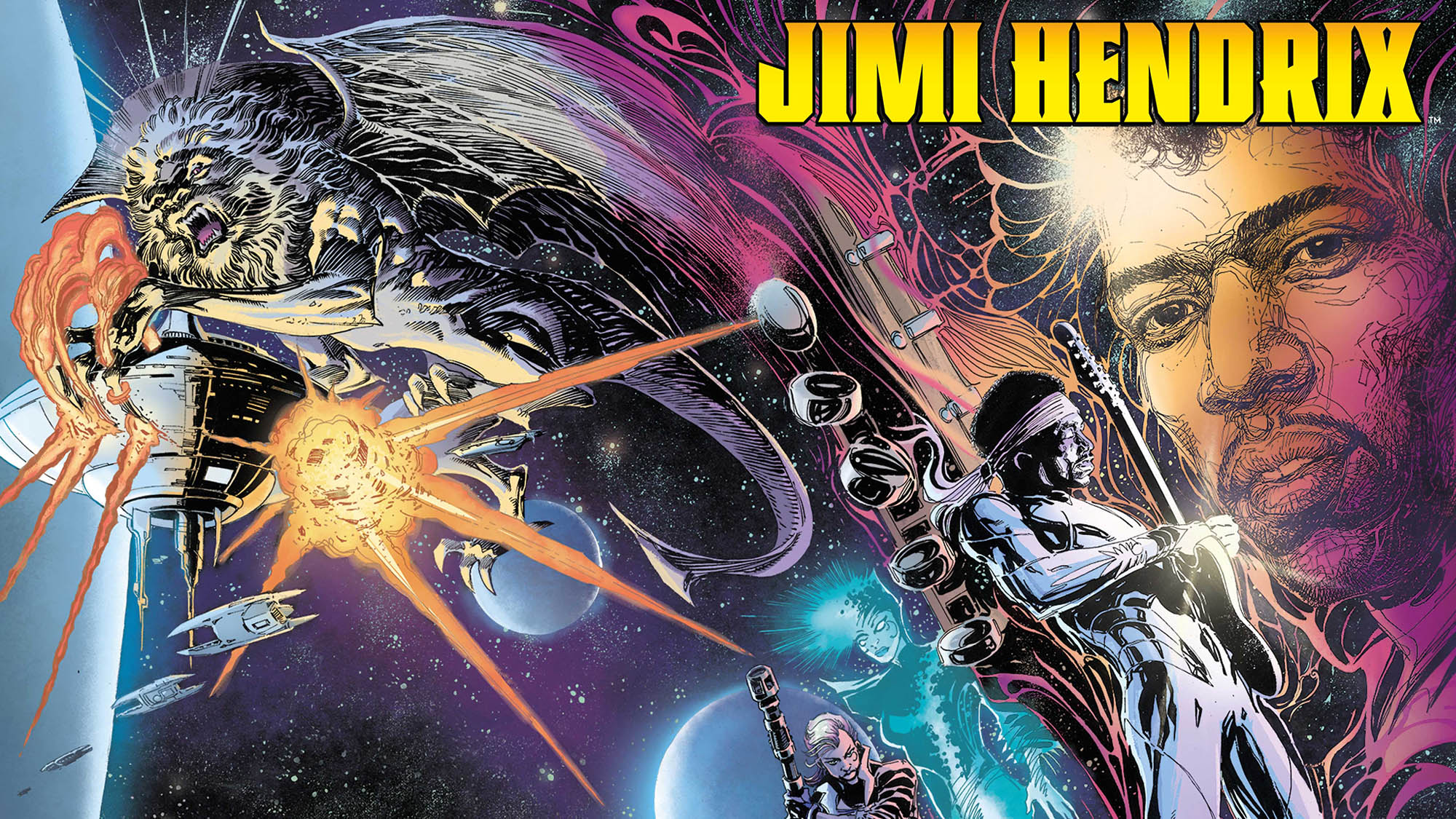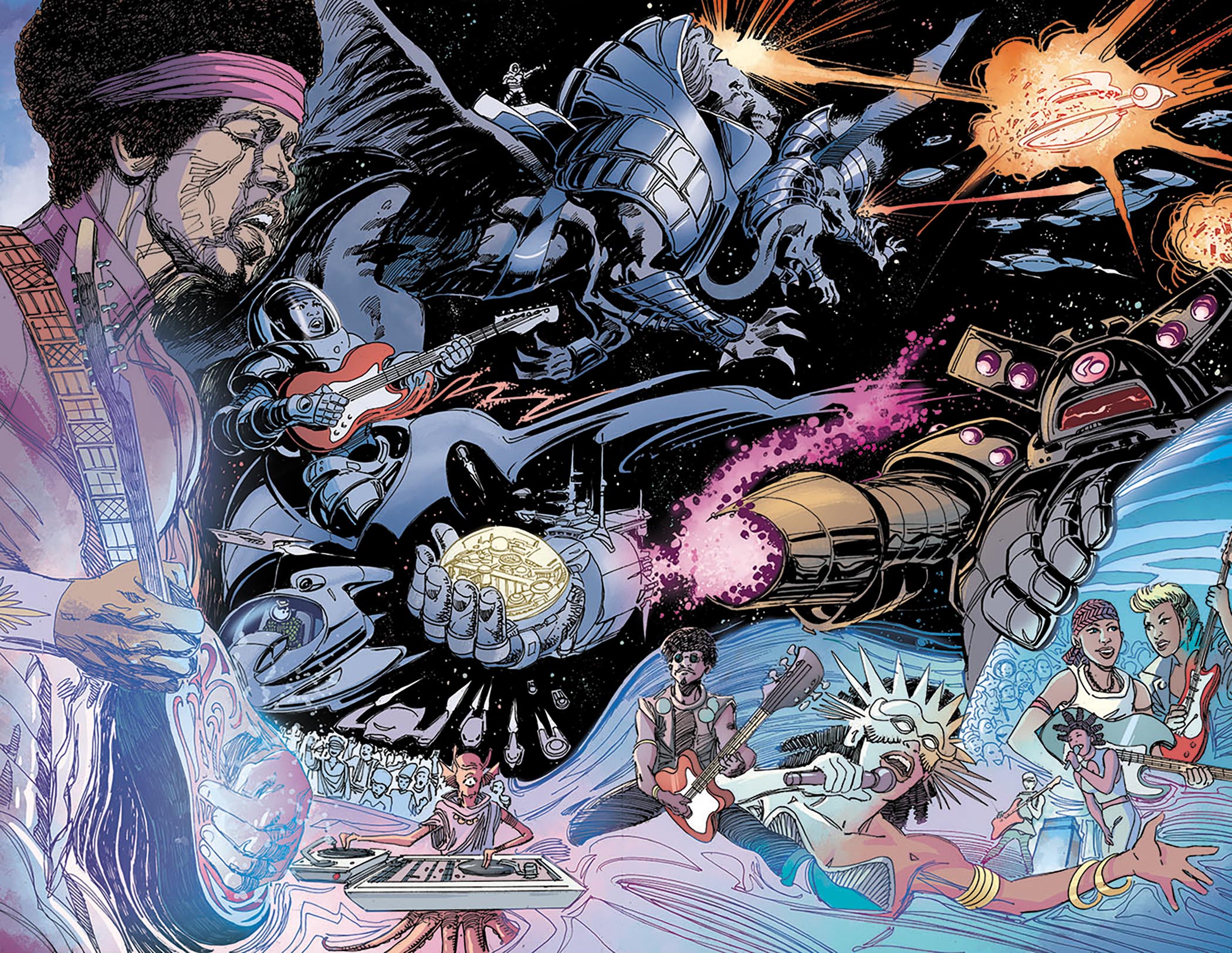“There are so many layers of Jimi that we didn’t see portrayed before”: Jimi Hendrix as a cosmic traveler and rock-star? We go inside the making of Purple Haze – the graphic novel reimagining guitar’s greatest player
In a new graphic novel, the guitarist is reinvented as a space traveler and political figure who happens to be the biggest rock star in the galaxy

While the enduring cultural idea of Jimi Hendrix is that of a larger-than-life rock god, complete with burning guitars and legendary sexual and drug-fuelled escapades, that perception ignores a key part of the guitarist’s identity: he was a massive sci-fi nerd.
It’s that semi-forgotten part of Hendrix’s soul that is at the heart of a new comic book. In Titan Comics’ Jimi Hendrix: Purple Haze, the guitarist is reinvented as a space traveler and political figure who is now the biggest rock star in the galaxy, rather than just on Earth.
The graphic novel, which was released in July at the San Diego Comic-Con, follows Hendrix as he travels from world to world in a quest to not only further his music, but to free people from a tyrannical government engaging in a forever war.
The comic was created with the full support of Hendrix’s sister Janie, who is in control of his brand.

We want to talk about a lot of Hendrix’s identity as inspiration for some of the songs that a lot of people don’t know
Mellow Brown
“She really wanted to do something that reflected more about her brother than a lot of the things she sees in the media,” says co-author Mellow Brown.
“We want to talk about a lot of his identity as inspiration for some of the songs that a lot of people don’t know. There is some backstory to him as a person that we wanted to reflect; there are so many layers of Jimi that we didn’t see portrayed before.”
To truly capture the psychedelic spirit of the music, artist Tom Mandrake looked at samples of Hendrix’s own visual art. It also was important that the book reflect an era of Hendrix’s career that is often given short shrift, as he moved away from the Experience and into Band of Gypsys – a move that came as Hendrix grappled with accusations that he was a Black man making music for white people.
All the latest guitar news, interviews, lessons, reviews, deals and more, direct to your inbox!
“There’s a lot of imagery that I see associated with rock music, and it’s not often associated with Black people in rock music,” said DJ BenHa Meen, the book’s other author.
“I wanted to take some of that iconic imagery – things you see on the side of vans, stuff like the old-school airbrush painting, something you would have on a blacklight window, things of that nature that we would see in a sci-fi nature. It’s another setting [where] you really don’t see Black people too [often].”
We’ve been making blues and protest music since we started in America. The form of it has changed, but the message has always been the same
DJ BenHa Meen
Ultimately, the book is an effort to re-contextualize Hendrix’s life and work for a new era – one where young artists and musicians making a big impact are rarely holding guitars.
“It’s a reference we make in the book to the river of Black music, and this river is a continuous theme that has been here throughout the history of America,” Meen says.
“We’ve been making the same form of music; we’ve been making blues and protest music since we started in America. The form of it has changed, but the message has always been the same.”
- Jimi Hendrix: Purple Haze will be available August 27 via Titan Comics.
Adam is a freelance writer whose work has appeared, aside from Guitar World, in Rolling Stone, Playboy, Esquire and VICE. He spent many years in bands you've never heard of before deciding to leave behind the financial uncertainty of rock'n roll for the lucrative life of journalism. He still finds time to recreate his dreams of stardom in his pop-punk tribute band, Finding Emo.


